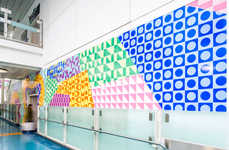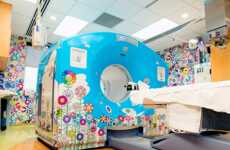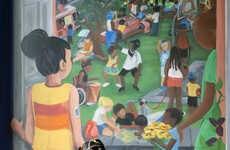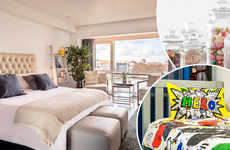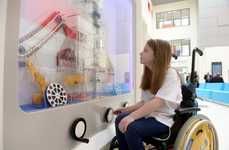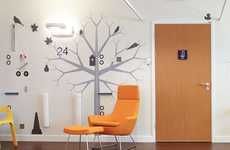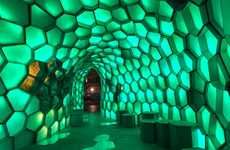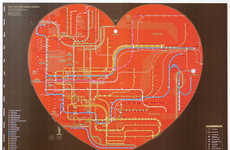
The Royal London Hospital Morag Myerscough Room is Playful
Jordy E — February 27, 2013 — Art & Design
References: chrisoshea.org & mymodernmet
The Royal London Hospital Morag Myerscough room has been made in the interest of healing. Children staying at the health center will now be able to partake in play within the space.
This project was orchestrated on behalf of the Cottrell and Vermeulen architects. Myerscough provided insight into the design and layout of the framework which kept in mind the potential fun that the kids could have in the Royal London Hospital.
Now present within the halls are giant stuffed animals, illuminated globes and surreal furniture pieces, offering some much needed distractions for the young patients in a manner that is as much lovable as it is artistic. Director of Vital Arts Anne Mullins explains the logic behind the decor, "We didn't just want them to be slumped in front of an Xbox."
This project was orchestrated on behalf of the Cottrell and Vermeulen architects. Myerscough provided insight into the design and layout of the framework which kept in mind the potential fun that the kids could have in the Royal London Hospital.
Now present within the halls are giant stuffed animals, illuminated globes and surreal furniture pieces, offering some much needed distractions for the young patients in a manner that is as much lovable as it is artistic. Director of Vital Arts Anne Mullins explains the logic behind the decor, "We didn't just want them to be slumped in front of an Xbox."
Trend Themes
1. Playful Health Center Design - Opportunity for architects and designers to create hospital spaces that prioritize child play and entertainment as a form of therapy.
2. Artistic Healing Spaces - Opportunity for artists and designers to collaborate in creating visually stunning hospital spaces that aid patient recovery and well-being.
3. Virtual Reality Distractions - Opportunity for hospitals to implement virtual reality as a tool for diversion therapy during medical treatments and procedures.
Industry Implications
1. Architecture - Architects and designers can incorporate playful design elements in healthcare facilities, prioritizing patient mental health and well-being.
2. Art and Design - Artists and designers can partner with hospitals to create immersive and therapeutic healthcare spaces that cater to children's needs and preferences.
3. Healthcare Technology - Hospitals can utilize virtual reality and other healthcare technologies to create immersive, distraction-based therapies that can help alleviate patient anxiety and discomfort.
2.4
Score
Popularity
Activity
Freshness


